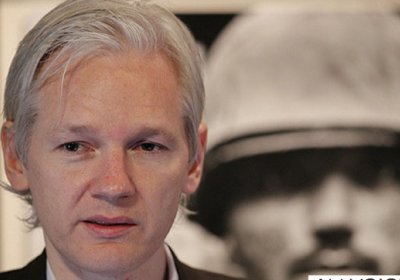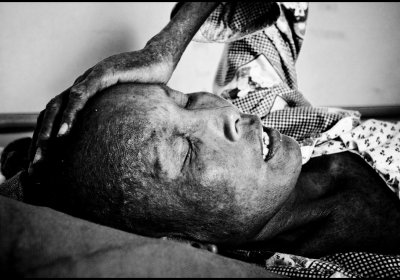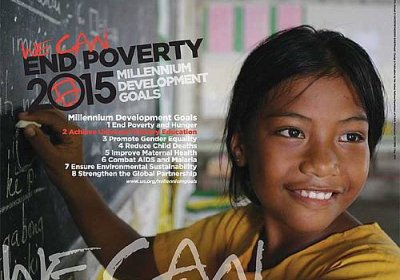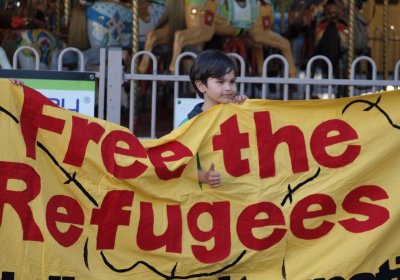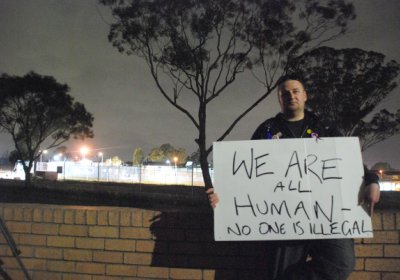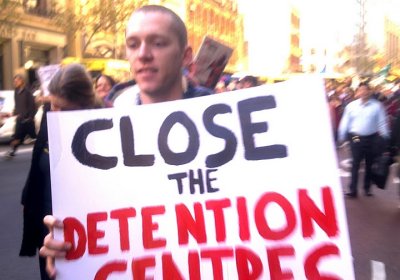More than 250,000 confidential files from United States embassies and consulates around the world sit in the database of whistleblower website Wikileaks.
Jay Fletcher
Despite pledges at the recent Millennium Development Goals (MDG) summit to combat HIV/AIDS, malaria and other diseases, there has been a constant battle across the global South for access to vital antiretroviral HIV/AIDS treatments and antibiotics for malaria and tuberculosis (TB).
One of the greatest challenges in accessing high-quality and affordable medicines is the collusion between rich governments and pharmaceutical giants.
The big four banks are squealing at a Greens plan to introduce bank regulation legislation to parliament and at a class action being considered against banks that gouge borrowers through variable interest rate loans.
The Commonwealth Bank (CBA), Westpac, ANZ and the National Australia Bank hiked interest rates above the 0.25% rise declared by the Reserve Bank of Australia (RBA) on November 3. The Australian Institute said on November 15 the rise would give the banks $1.2 billion more profit.
When the United Nations Millennium Development Goals Summit took place in September, leaders from rich countries, as well as aid and research organisatons, met with Third World nations and “recommitted” to eight anti-poverty goals.
The goals were set in the Millennium Declaration in 2000, to be met by 2015. “Donor” countries pledged financial and technical aid to halve extreme poverty and reduce hunger, disease and illiteracy across the global South.
The Australian Human Rights Commission (AHRC) released a report on the Christmas Island detention centre on October 29, and again called for an end to mandatory detention and offshore processing.
The 75-page report detailed the hostile conditions faced by asylum seekers, including the island’s remote location and limited access to essential services such as legal help, health care, torture and trauma counselling and religious support.
The report said Australia’s detention system breaches fundamental human rights.
Mark Fordham, an Aboriginal activist from the Northern Territory and member of the Liquor Hospitality and Miscellaneous Workers Union, is touring the east coast to raise awareness about the jobs with justice campaign. The campaign aims to force the government to provide real jobs and services to remote Aboriginal communities in the NT (see article page 7).
In Sydney, Fordham spoke to waterside workers with Maritime Union of Australia (MUA) officials. He thanked maritime workers for their solidarity with the Gurindji workers who walked off Wave Hill station in 1966.
The federal Labor government has announced plans to move some children and families out of refugee detention, but will not change its policy of locking up unaccompanied children who arrive in Australia by boat.
The Australian federal government spends more money on private schools than most other wealthy countries, and spends less than most on public education.
A recent report by the Organisation for Economic Cooperation and Development, Education at a Glance 2010, showed Australia gave 16.9% of education money to private schools and 71.9% to government schools.
The US spends 0.2% and 99.8% respectively.
Most money for private school funding comes from the federal government, which argues that “grants” and “subsidies” make private schools more affordable.
Immigration minister Chris Bowen visited East Timor on October 11 to push Australia’s offshore detention centre plan.
He also visited Indonesia and Malaysia over October 12-14. Bowen’s purpose was to enforce “strong cooperation with regional neighbours” on Australia’s border control.
He said he wanted East Timor to “play a role” by allowing the Australian government to build a refugee detention centre there.
Seven refugee rights activists were forced out of Sydney’s Villawood Immigration Detention Centre on October 4. Two days later, another refugee advocate, Rosalie Scolari, was banned from Maribyrnong detention centre in Melbourne.
Private prisons operator Serco runs both detention centres.
Scolari was trying to visit gay Tamil detainee Leela Krishna, who was recently moved from Villawood to Maribyrnong. He has spent more than 12 months imprisoned and a community campaign has called for his immediate release.
A “people's assembly for refugees” met in front of Parliament House on September 28 to call on the government to introduce humane policies and stop using refugees as political footballs.
More than 160 people from Victoria, the ACT and NSW were joined by Greens parliamentarians Sarah Hanson-Young and Adam Bandt, and independent MP Andrew Wilkie.
The rally was called by the Refugee Advocacy Network, a Melbourne-based coalition of refugee activist, advocacy and support groups. It was endorsed by 48 groups from across Australia.
The federal Labor government has ignored the rising humanitarian crisis in Australian detention centres, even after Fijian-born Josefa Rauluni jumped to his death inside Villawood on September 20.
Three days before the tragic event, newly appointed immigration minister Chris Bowen announced that $50 million would be spent on 1600 new detention spots for asylum seekers.
Six hundred beds would be added to Curtin detention centre in remote WA, and 100 places would be added for families and children inside Melbourne’s “Immigration Transit Accommodation”.
- Previous page
- Page 16
- Next page
